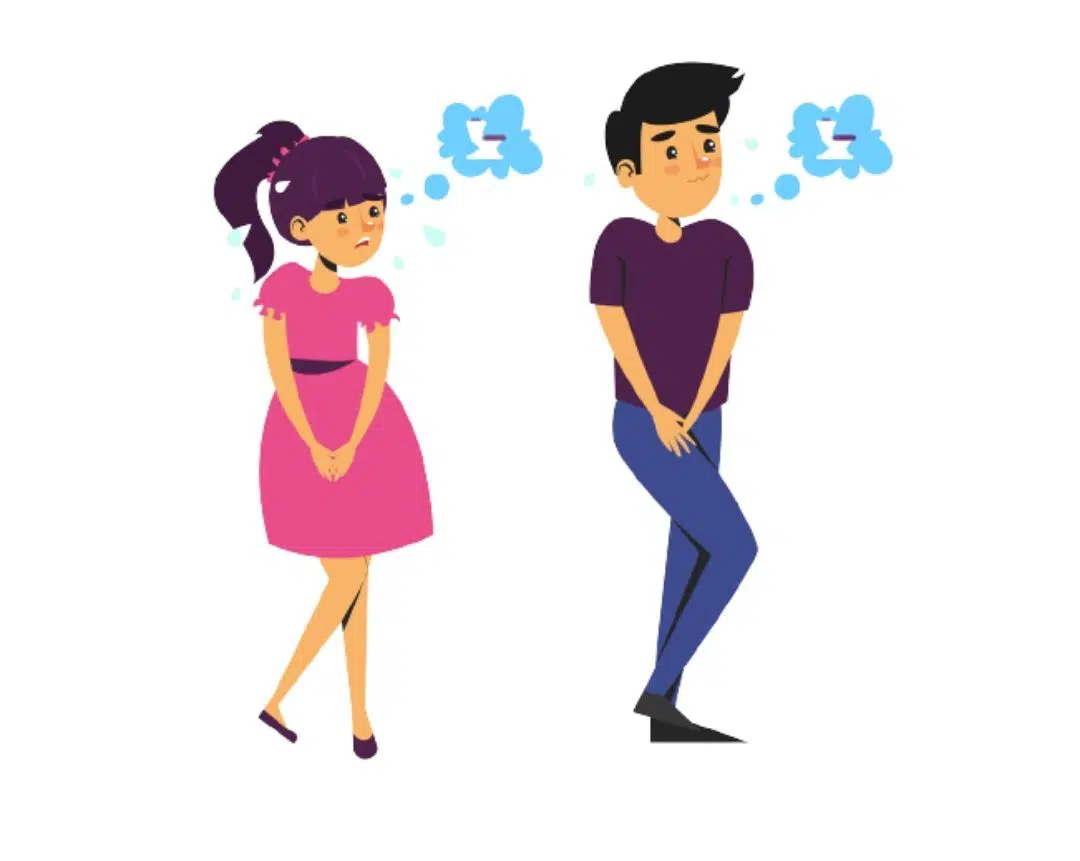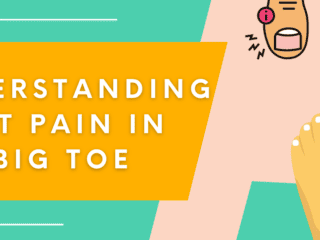Why do I feel like I have to pee after I already peed? Have you ever gone to the bathroom to pee and then a few minutes later, you have the sensation of needing to pee again? We’ve all been there, some more than others.
We examine the reasons why you might be experiencing the need to constantly use the bathroom, as well as when to press the panic button and consult your medical practitioner.
Why Do I Feel Like I Have To Pee After I Recently Peed?
Some causes of frequent urination include:
– Drinking frequently
– A Urinary Tract Infection
– Pregnancy
– An overactive bladder
– An enlarged prostate
– Consumtion of a diuretic
– Pelvic floor issues
– Diabetes
– Anxiety
Peeing Too Often: The Signs
While sprinting to the bathroom is perfectly normal when your bladder is about to burst, if it’s happening multiple times a day, it could signal a more serious health problem. Is your bladder filling up too quickly? Listed below are a few ways to tell.
When too much becomes too much
If you urinate more than seven times a day, there’s a chance you have a problem. But even if you’re not quite at that number, any large changes in your normal urinary pattern could be a sign of trouble.
Two to three bathroom visits a night should also be taken seriously. You should be able to get a good night’s rest without needing to run to the bathroom at all.
Surpassed the limit. Now what?
If you have an overactive bladder (OAB), nerve signals tell your brain when you need to go. However, these signals can fire even when you are low on urine. Doctors aren’t sure what causes an overactive bladder, but the risk increases with age.
Diabetes, urinary tract infections, and an enlarged prostate are all potential causes. The gland squeezes your urethra, forcing your bladder to work harder to push the urine out. This increased activity aggravates the nerves, resulting in a feeling of panic.
Furthermore, urethral squeezing can result in a weak flow, which prevents you from completely emptying your bladder and increases the likelihood of frequent bathroom trips.
In some cases, you may pee often, but your urine dribbles out slowly. While this could indicate an enlarged prostate, it could also indicate a stricture, which is a build-up of scar tissue in your urethra.
This might be as a result of past surgery, an accident, or a previous sexually transmitted illness (STI). It’s uncomfortable and can cause urine retention, which, if left untreated, can damage your kidneys. Cystoscopy or surgery are frequently suggested treatments in these cases.
Am I Drinking Too Much?
This is possible, especially if you consume diuretics like caffeinated tea, coffee, or alcohol. Drinking these beverages late at night may cause you to wake up needing to pee. For a better night’s sleep, avoid these drinks for around 4 hours before going to bed.
Feeling worried or uneasy might sometimes trigger the need to pee, even if you’ve already gone. Focusing on something else to divert your attention away from the urge can help it pass. Using soothing breathing techniques can also be beneficial.

When to Make an Appointment
Make the call if your frequent trips are beginning to negatively affect your day. You should also contact your doctor if you have pain when peeing or notice blood in your urine. These symptoms may indicate a bacterial infection or something more serious, such as bladder cancer.
Make a doctor’s appointment within a day or two if you experience:
- Change in your urine color
- Mental health disorder
- Weak stream or difficulty starting urination
- Incontinence
- Night sweats
- Pain/burning before, during, or after urination
- Sudden weight loss
Contact your doctor immediately if you experience:
- Blood in your urine
- Foul-smelling discharge
- Shaking and chills
- Side or back pain
- Vomiting
Immediately go to the hospital if you are experiencing weakness in your legs as this could be a sign of spinal cord disorder.
What to Expect
Your primary care physician will conduct a blood test to rule out any underlying medical issues, such as diabetes, as well as a urine culture to rule out any infections.
They may also perform a rectal exam to assess the size of your prostate. Your doctor may request that you keep a diary of your eating and toilet habits as this can help rule out any lifestyle factors such as excessive caffeine consumption.
Before a diagnosis of overactive bladder can be made, they need to rule out other possible causes. For example, your doctor may prescribe an ultrasound to look for kidney stones.
Treatment is determined by the underlying cause of the problem: Antibiotics may be prescribed by your doctor to treat any bacterial illness. They may advise you to practice pelvic exercises like Kegels.
If that doesn’t work, your doctor may prescribe a bladder relaxant such as Vesicare, Detrol, or Ditropan. Botox can be used to settle your bladder and lower the need to pee in some circumstances.
With successful therapy, you can enhance your quality of life and minimize the number of toilet trips you make on a daily basis. An overactive bladder won’t go away completely, but you can learn to manage it and, in some situations, finally quit taking your medications.
Managing Urge Incontinence in Daily Life
Urge incontinence, also known as overactive bladder, can make you feel helpless. When you have an overwhelming desire to urinate, you may not always be capable of making it to the toilet. And you could get this craving just by hearing water run.
Urge incontinence occurs when the bladder spasms or contracts at inconvenient times. Even if your bladder isn’t full, you may leak urine while sleeping or feel the need to pee after drinking a small amount of liquid. This experience could be caused by nerve injury or faulty nerve signals to the brain. Numerous medical disorders and drugs can intensify it.
Feeling worried or uneasy might sometimes trigger the need to pee, even if you have already peed. Focusing on something else to divert your attention away from the urge can help it pass. Practice soothing breathing techniques to lower anxiety which could be causing the need to pee.
Whatever the cause, you don’t have to believe that your OAB symptoms are out of your hands. In truth, you may be able to gain control of them simply by altering your everyday habits. To get started, use these helpful suggestions.
Reducing the Symptoms of OAB
Because coffee, nicotine, and alcohol all aggravate the bladder, avoiding them can considerably minimize the symptoms of urge incontinence. Caffeine is also a stimulant, which means it leads you to urinate more. It can be difficult to eliminate the big three. Try the following approaches:
- Speak with your doctor regarding smoking cessation organizations.
- Wean yourself off for about a week or two until you’re caffeine-free.
- Restrict yourself to one alcoholic drink each day.
Stay Hydrated to Reduce Urinary Incontinence
Controlling your fluid consumption is difficult. You might believe that reducing liquids, in general, will help lower OAB. In actuality, it can cause urine to become more concentrated, irritating the bladder. On the other hand, it’s best not to put too much strain on the bladder by ingesting excessive amounts of fluids. Try the following strategies:
- Drink four to eight 8-ounce glasses of plain water every day. If your urine is pale yellow or virtually colorless, you’ve drunk enough.
- Sip your water throughout the day.
- Carry a little water bottle unless you’re exercising.
- Reduce your drinking two to three hours prior to bedtime.
- If you use a diuretic, consider taking it first thing in the morning.
Train Your Overactive Bladder
Your bladder can be trained to hold more urine for longer. Improved muscular control can also be beneficial. Ask your doctor for a precise strategy to follow; results can take up to three months. These techniques may be part of this strategy:
Maintain a bladder control journal. Keep track of how much you drink, when you urinate, as well as how much you sweat and whether it’s average for you or less than average, or more than average. Write down how strong your urge to urinate is on a scale of 1 to 10, as well as whether any urine spills.
Break the link between the mind and the bladder. Try modifying your schedule if you have particular behaviors, such as dashing to the bathroom as soon as you get to work or home. The desire to urinate may fade after 30 to 60 seconds.
Although urge incontinence is unpleasant, it’s also relatively curable. Adjustments to your habits and lifestyle can help you address them. So, take account of how often you use the restroom because if it’s six to eight times per day, you’re OK. If it’s more, consult your doctor right away.
More Articles
Why Is My Poop Green When I Didn’t Eat Anything Green?








